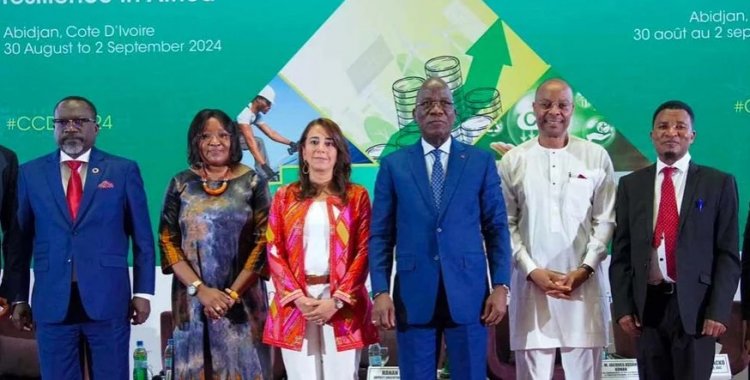“Climate finance remains woefully inadequate; the 100 billion dollars pledged annually in 2009 was only reached in 2022, falling far short of the estimated 1.3 trillion dollars needed to sustain global climate action,” said Hanan Morsy, Deputy Executive Secretary of the United Nations Economic Commission for Africa (UNECA).
Global climate finance for adaptation “was supposed to double by 2025 but is falling behind, jeopardizing the Sustainable Development Goals (SDGs) and ongoing investments in resilience,” she noted.
Hanan Morsy was speaking at the 12th Conference on Climate Change and Development (CCDA), which is taking place this week in Abidjan, organised by several international organisations, coinciding with the African Ministerial Conference on the Environment (AMCEN), and ahead of the UN World Conference on the Environment (COP29), which will take place in November in Baku, Azerbaijan.
"Fighting climate change is the greatest challenge humanity has faced in a century," said Côte d'Ivoire's Environment Minister, Jacques Assahoré Konan, noting that "the continent suffers a disproportionate impact from climate change, to which it contributes only 4 percent.
Therefore, the minister said, "adapting to these adverse effects is a major concern on the continent, and ensuring adequate financing is crucial."
At the conference, under the theme 'Financing Climate Adaptation and Resilience in Africa', Hanan Morsy argued that "without substantial investment in adaptation, Africa cannot seize the opportunities for job creation, green growth and preventing losses."
The UNECA chief economist also added that the continent does not have the liquidity necessary to make the investments that enable the energy transition, especially because with the growing debt burden "many African countries spend five times more on debt service than on climate action."
Access to the financial resources needed for the transition was also addressed by the director of the African program at the Carnegie Endowment for International Peasse, Zainab Usman, in an opinion piece published today in the British Financial Times.
African oil-producing countries, such as Portuguese-speaking Angola and Equatorial Guinea, are not reaping the benefits of rising oil prices since the Covid-19 pandemic, writes Zainab Usman.
"Despite oil prices being high since 2021, most oil producers are not seeing an improvement in their economies; in the short term, this will affect their budgetary positions, and in the long term it will reduce access to the financial resources needed to implement development projects and migrate to low-emission economies," the article reads.
For this expert, it is true that the world will have to reduce the production and consumption of fossil fuels, a "painful process", but "the energy transition could be even more problematic for Africa if nations are not able to capture and reinvest the profits from their natural resources in financing their own development".







